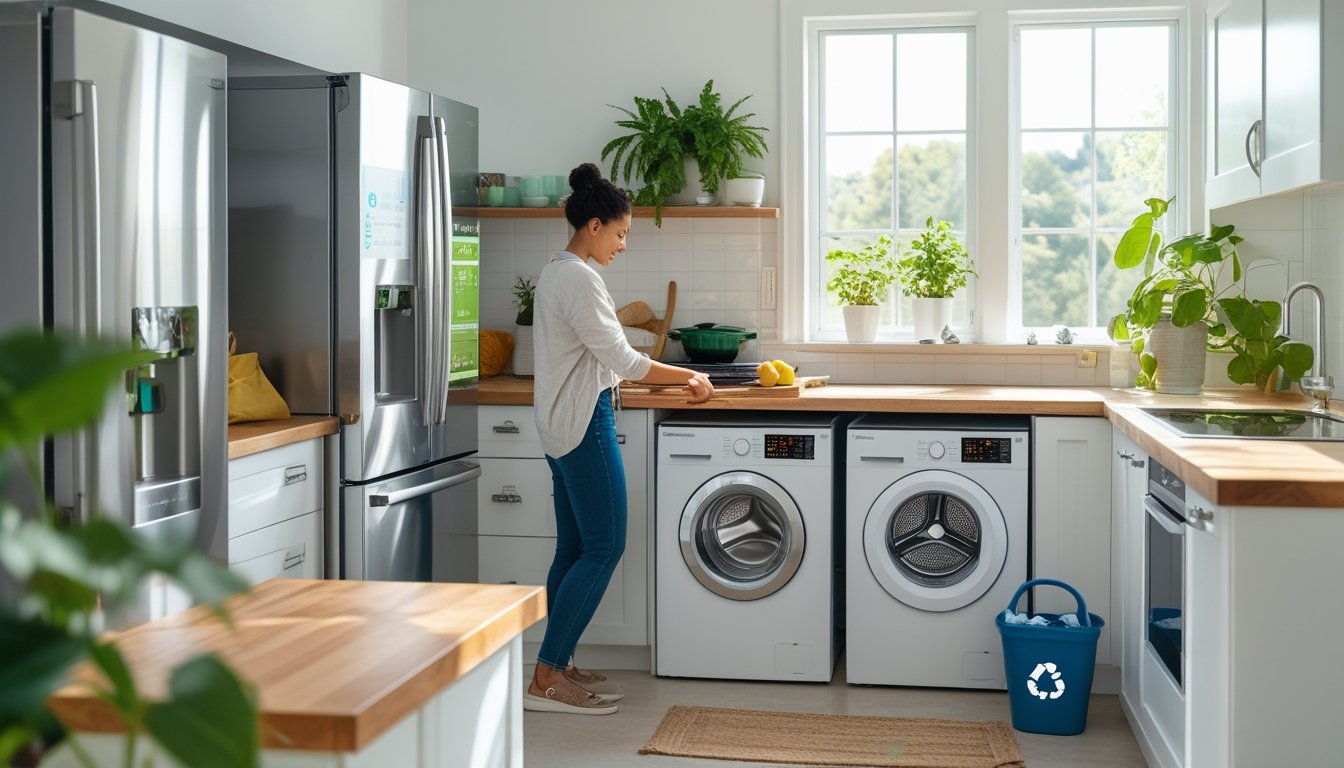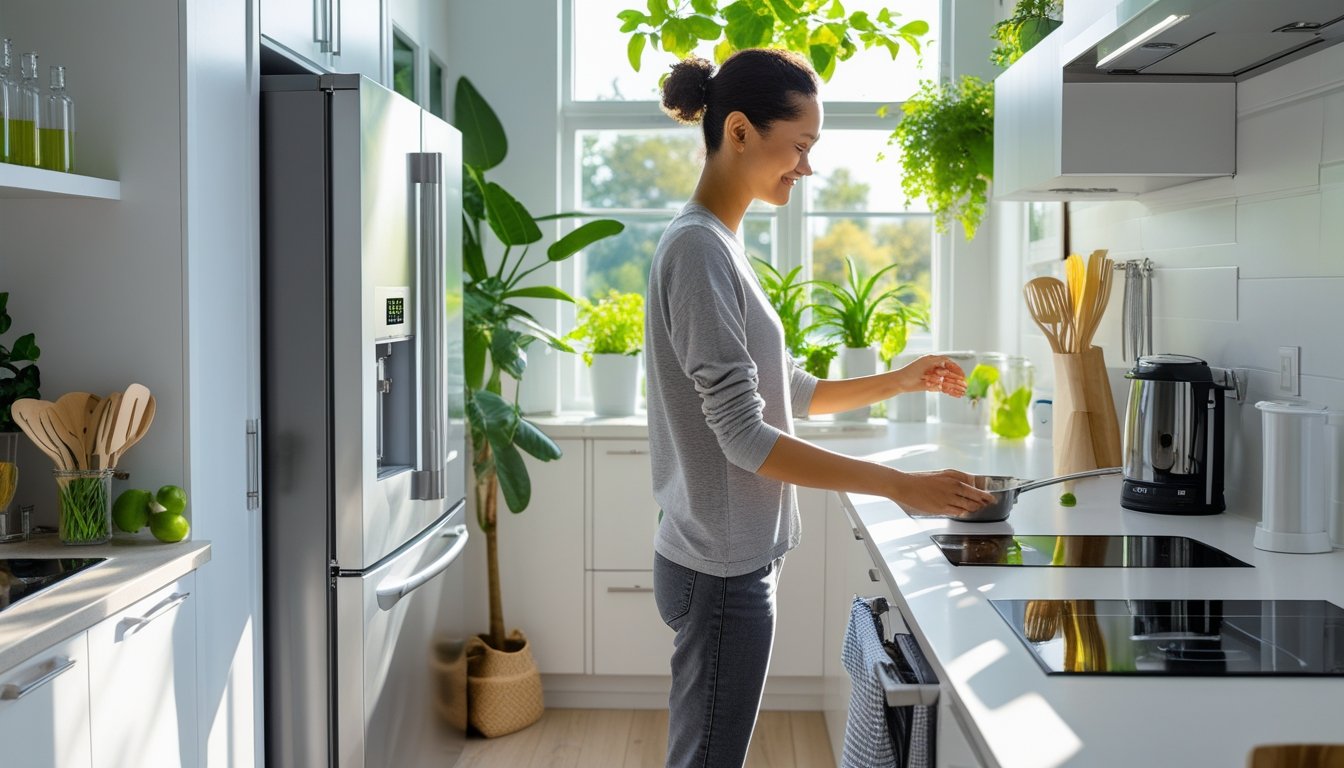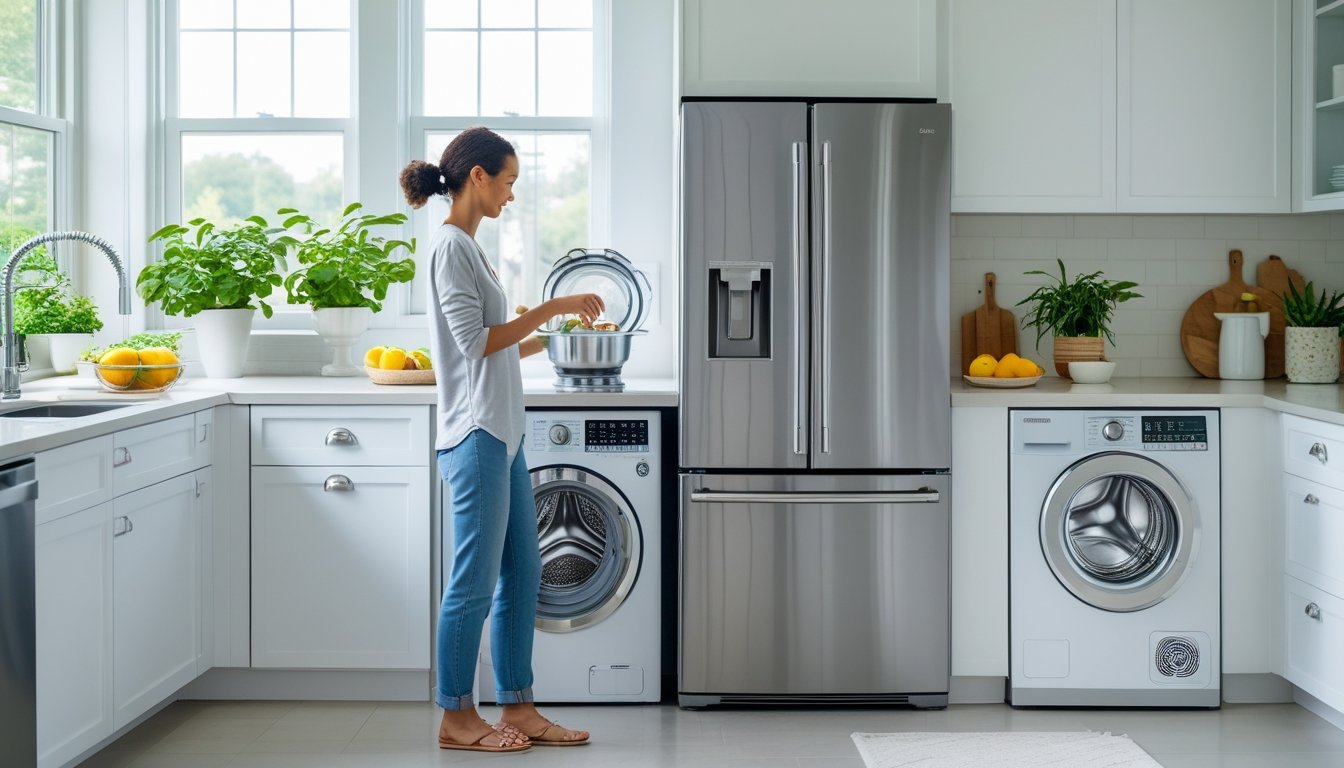Late updated: 06 Aug 2025 09:08
Written by: Sarah Hollister
Eco-Friendly Tips For Sustainable Home Appliance Use: Maximising Efficiency and Reducing Waste
In today's fast-paced world, making eco-friendly decisions is not just a trend but a necessity for preserving our planet. Our homes, filled with various appliances, are significant contributors to our energy consumption. By adopting eco-friendly practices with our home appliances, we can reduce energy use, lower utility bills, and contribute positively to the environment. Let’s explore practical tips for using these appliances efficiently, choosing sustainable options, and ensuring they serve us longer while being kind to our planet.

Every choice we make in our homes can either contribute to waste or promote a greener lifestyle. As we consider the appliances we rely on daily, there are numerous ways to use them more sustainably. From simple maintenance routines to smarter usage habits, every adjustment counts. We can dive deeper into what makes an appliance eco-friendly and how innovation is reshaping the way we integrate these devices into our lives.
Combining smart choices and mindful usage, we can collectively make an impact. Whether we are upgrading to newer, energy-efficient models or optimising our current appliances, our actions have meaningful effects. By understanding what changes can be made, we empower ourselves to foster a sustainable living environment in our homes.
Key Takeaways
- Eco-friendly appliance use cuts energy consumption and saves money.
- Regular maintenance improves efficiency and lifespan.
- Smart usage habits contribute to sustainability.
Fundamental Principles of Sustainable Home Appliance Use

Incorporating sustainable practices into our home appliance use involves minimising both energy and water consumption while selecting devices that contribute to a reduced environmental footprint. By focusing on these key principles, we can enhance our commitment to a sustainable lifestyle.
Understanding Environmental Impact and Energy Consumption
Our home appliances are significant contributors to energy consumption, and thus, carbon footprint. Energy-intensive appliances, like refrigerators and dishwashers, typically use the most electricity. We must understand how these affect the environment and make informed choices to reduce their impact.
- Opt for energy-efficient appliances that are certified by reputable organisations such as Energy Star.
- Incorporating energy monitors can help us track consumption and identify areas for improvement.
- Implementing advanced insulation techniques can also maximise energy efficiency in appliances like ovens and dryers.
By acknowledging these factors, we play an active role in building an eco-friendly home.
Selecting Eco-Friendly and Energy-Efficient Appliances
Selecting appliances with sustainability in mind can greatly influence our environmental impact. Eco-friendly options excel in using less power while maintaining performance. When purchasing new appliances:
- Choose models endorsed by Energy Star or WaterSense for guaranteed efficiency.
- Consider energy-efficient refrigerators that use advanced technology to conserve power without compromising cooling performance.
- Research sustainable appliances that are built from recyclable materials with a longer lifespan.
These choices ensure that our homes remain efficient and our appliances contribute positively to the environment.
Water Use Reduction in Home Appliances
Water conservation is a crucial component of sustainable appliance use. It involves not only selecting water-efficient appliances but also employing mindful usage habits to curb unnecessary wastage.
- We should prioritise dishwashers and washing machines that have water-saving features.
- Adjust usage settings to suit the load sizes, preventing water waste.
- Regular maintenance of appliances ensures they operate at peak efficiency, further reducing water use.
These strategies help manage our water resources more effectively while promoting sustainability in our daily lives.
Practical Eco-Friendly Tips for Appliance Use and Maintenance
To achieve sustainable home appliance use, focus on energy efficiency and regular maintenance. By optimising usage, implementing upgrades, and taking advantage of incentives, we can save on utility bills and reduce greenhouse gas emissions effectively.
Maximising Efficiency with Washing Machines and Dishwashers
It's essential to run washing machines and dishwashers with full loads to use energy and water efficiently. By using cold water settings, we can significantly reduce energy consumption. Eco-wash cycles, available on many newer models, optimise energy use and clean effectively.
Regular cleaning of filters and seals also improves appliance efficiency. Eco-friendly detergents are gentle on the environment and can enhance this sustainable approach.
Smart and Connected Appliance Practices
Smart appliances offer simpler ways to manage energy use. Energy-monitoring features allow us to adjust usage based on consumption data. For example, staggering appliance operations to off-peak hours can lead to lower energy costs and load reduction on the grid.
Remote monitoring of appliances enables optimised usage, and by using app alerts for maintenance needs, we ensure longevity and efficiency. Embracing smart technologies aids our overall sustainability goals.
Maintaining and Upgrading Appliances Sustainably
Routine maintenance is crucial for sustaining appliance efficiency. Cleaning coils, vents, and filters regularly can enhance performance and extend life. Before replacing appliances, we must consider repairing or upgrading them with Energy Star-rated components, which can lead to significant energy savings.
Investing in energy-efficient appliances, especially when older machines show signs of wear, can help reduce our carbon footprint. Recycling old appliances, where possible, also minimises environmental impact.
Government Incentives and Reducing Utility Bills
Exploring government incentives can make eco-friendly choices more cost-effective. Rebates and tax credits are often available for purchasing energy-efficient appliances. Implementing energy-saving solutions can further lead to utility bill savings.
Energy audits, sometimes funded by government schemes, can identify ways to save energy at home. Through incentives, we can smoothly transition to a greener lifestyle while enjoying financial benefits.
Frequently Asked Questions

In the realm of sustainable home appliances, energy efficiency and environmental impact are pivotal concerns. Here, we delve into some pressing questions about eco-friendly appliance use in everyday life.
What are the benefits of using energy-efficient appliances at home?
Energy-efficient appliances significantly reduce electricity consumption, leading to lower utility bills. By consuming less power, they also contribute to reduced greenhouse gas emissions, supporting a healthier environment.
How do energy-saving kitchen appliances contribute to a sustainable lifestyle?
Energy-saving kitchen appliances optimise resource use, thus lowering energy demands. Appliances such as A+++ rated refrigerators and ovens not only save energy but can also extend the longevity and reduce the frequency of replacements.
In what ways can switching to eco-friendly washing machines impact the environment?
Eco-friendly washing machines use less water and energy, vastly reducing waste during operation. This decrease in resource usage positively influences the environment by conserving essential resources and limiting pollution.
What criteria should be considered when choosing eco-friendly appliance brands?
When selecting brands, look for their commitment to sustainable practices, including the use of sustainable materials and eco-friendly manufacturing processes. Investigate their energy-efficient ratings and certifications.
How do Energy Star-rated appliances differ from regular appliances in terms of environmental impact?
Energy Star-rated appliances meet strict energy efficiency criteria set by the government. They operate using less energy than regular models, thus decreasing carbon emissions and providing cost savings over time.
What options are available for those seeking to use plastic-free home appliances?
Options include appliances made from stainless steel, glass, or other sustainable materials. These materials replace traditional plastics commonly used in home appliances, reducing plastic waste and environmental impact.
